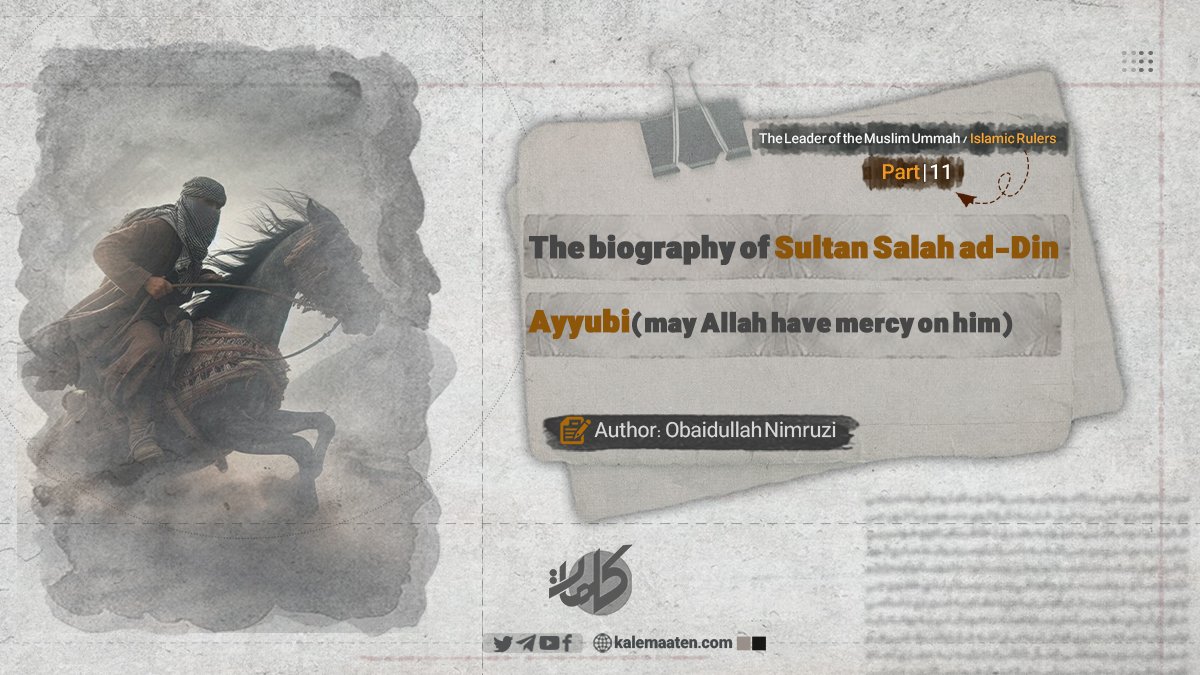
Author: Obaidullah Nimruzi
The Biography of Sultan Salah ad-Din Ayyubi, ‘May Allah Have Mercy on Him’ (Part 11)
The Death of Sultan Salah ad-Din Ayyubi, May Allah Have Mercy on Him:
Finally, after fulfilling his sacred duty of protecting and saving the Islamic world from the enslavement of the Crusaders, Sultan Salah ad-Din Ayyubi passed away on 27 Safar, 589 AH, at the age of 57. Qazi Bahauddin Ibn Shaddad wrote about the Sultan’s death as follows:
“On the 27th of Safar, which was the twelfth day of the Sultan’s illness, his condition worsened, and he became weak. Sheikh Abu Ja’far Imam al-Kalasah—one of the righteous and distinguished elders—was entrusted with spending the night in the castle and watching over the Sultan. If the Sultan became anxious during the night, the Sheikh was to advise him to strive for martyrdom. During the night, the Sultan’s outward appearance indicated that he was preparing for the journey to the afterlife. Sheikh Abu Ja’far sat next to the Sultan, engaging in reciting the Quran and performing Zikr (remembrance of Allah).
The Sultan had been unconscious for three days and nights; however, he occasionally regained consciousness. At one instance, when the Sheikh recited the verse, ‘He is Allah; there is no deity except Him, the Knower of the unseen and the witnessed,’ the Sultan regained consciousness, smiled, and said, ‘Indeed, what you have recited speaks of the oneness of Allah.’ After saying this, he surrendered his soul to the Giver of Life. At that moment, it was dawn on Wednesday, the twenty-seventh of Safar.
This situation was so unbearable for the people that such a difficult day had not occurred for Muslims since the time of the Rightly Guided Caliphs. The castle, the city, and the entire country were in a state of terror. What profound silence and despair enveloped the people! I had previously heard discussions that some wished to be sacrificed for their friends, but I did not believe those accounts, thinking them merely complicated and permissible talks without truth or reality. Yet, on this day, it was proven to me as an undeniable fact; numerous people would have willingly dedicated their lives for the Sultan if they had been given the opportunity to do so.
Qazi Ibn Shaddad noted that the Sultan left behind only forty-seven dirhams in his estate. Furthermore, he owned no mansion, house, garden, village, or farm. Not even a single riyal from his estate was spent on his funeral preparations. All of his burial equipment was purchased on credit; even the bundles of plants covering his grave were acquired on credit. The funds for the shroud were provided by his minister, who was also a scribe and a scholar, taken from lawful and permissible income.”
Continues…


